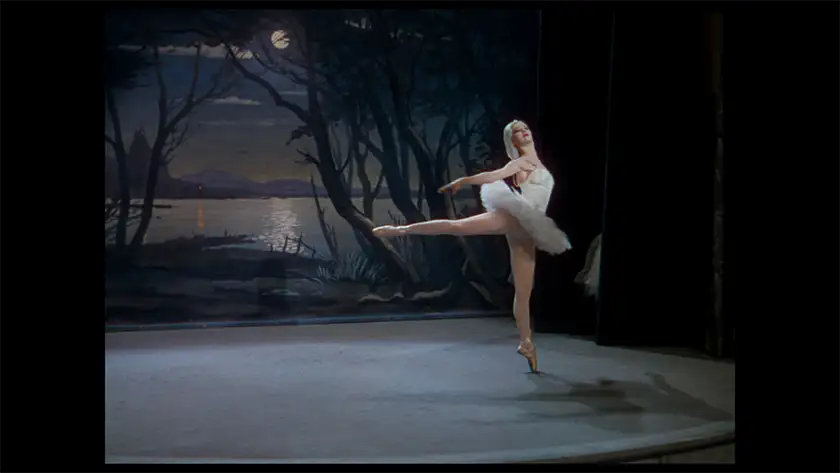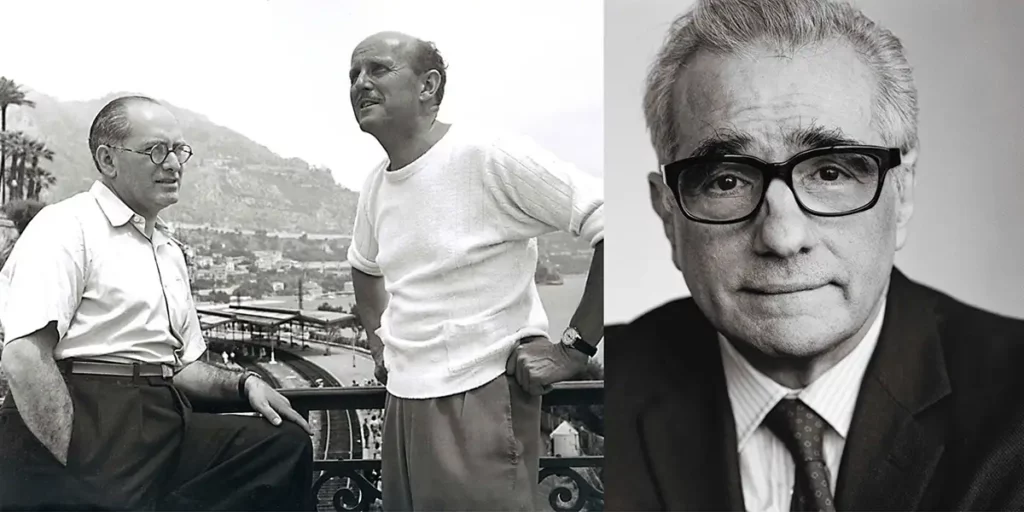The outstanding Made in England sees Martin Scorsese look at Powell and Pressburger and his personal connection to the legendary pair.
Director: David Hinton
Genre: Documentary
Run Time: 131′
UK & Irish Release: May 10, 2024
US Release: July 12 in NY, July 16 in LA, national rollout to follow
Where to watch: in theaters
Every new film by Martin Scorsese should be considered an event. Even the ones he doesn’t direct, or perhaps, especially those ones. In between making masterpieces like Casino or Killers of the Flower Moon, Scorsese has been an exemplary professor of cinema. That can be seen in the documentaries he has presented on US cinema (A Personal Journey with Martin Scorsese Through American Movies)and Italian Neorealism (My Voyage to Italy).
Now, for his latest project, he has turned to British cinema. For decades, Scorsese has championed directors Michael Powell and Emeric Pressburger alongside long-time editor Thelma Schoonmaker (who was married to Powell until his death in 1990). That continues with Made in England: The Films of Powell and Pressburger, an outstanding look at the legendary pair and the director’s personal connection to them.
The film is directed by David Hinton, the BAFTA and Emmy-winning filmmaker who covered Michael Powell on an episode of ITV’s The South Banks Art Show. Hinton uses footage from that episode alongside recordings from Powell, Pressburger and Scorsese’s archives to guide us through the story of the Archers, their creative partnership and their long friendship. We hear how Powell began under silent movie director Rex Ingram before meeting Pressburger, a Hungarian immigrant who left Germany following the rise of Hitler. However, the man who gives Made in England its distinct voice is the one with the ‘presented by’ credit.
Martin Scorsese not only narrates this biography of Powell and Pressburger but recounts his memories of them in a way that makes Made in England multi-biographical. As a child with asthma in the 1940s, he was glued to his family’s tiny TV and remembers seeing The Thief of Bagdad (which Powell made by himself) and The Tales of Hoffman. The reason for this was that, unlike Hollywood, British distributors were willing to sell their films to US TV. Nevertheless, for Scorsese, it led to an adoration for Powell and Pressburger that shines through here, both descriptively and stylistically. At one point, Hinton renders some of the Archers’ glorious in a small, black-and-white format – the way Scorsese first experienced them.

It is always enthralling to hear Scorsese speak about movies, and he goes through Powell and Pressburger with a fine-tooth comb, analysing their filmography in-depth. He mentions their early WWII propaganda films (The Spy in Black, 49th Parallel) and talks about how A Matter of Life and Death saw the pair embrace artifice and present life in striking Technicolor. That takes us to Powell’s quest for a ‘composed film’ – a movie of pure action, no dialogue and music taking the lead. As Hinton shows through carefully selected clips, the idea was initially found in Black Narcissus before being expanded upon in The Red Shoes’ famous ballet sequence.
These analyses also reveal more of thismulti-biographical edge as Scorsese reflects on how these films shaped his career. He reveals parallels between the obsessive Lermontov in The Red Shoes and Travis Bickle in Taxi Driver, and how Powell pulling back from the duel in The Life and Death of Colonel Blimp led to him showing little of the championship fight in Raging Bull. Furthermore, as an older Powell describes during an interview how he sees himself in the titular protagonist of Colonel Blimp, Scorsese says that he now sees parts of himself in that story.
It is undisputedly clear that Made in England manages to prove the significance of Powell and Pressburger. They were audacious filmmakers, with Powell’s showiness and Pressburger’s skill in narrative structure combining to create nuanced, mystical and well-crafted classics. They were experimental too, as they went back and forth between Technicolor and black-and-white, between fantastical worlds and grounded humanism. But Hinton doesn’t shy away from their later struggles for creative independence and eventual split. The pair were out of step with the changing British film industry and the kitchen sink dramas of Tony Richardson, Karel Reisz and Lindsay Anderson. Then came Powell’s Peeping Tom, an excellent horror that received a vitriolic (and unwarranted) reception from the British media at the time.
You might need to be a fan of the visual essay documentary style to appreciate Made in England. However, crucially, you don’t need to be an Archers aficionado. Hinton has made something conventional but perfect, drawing on Scorsese’s expertise on Powell and Pressburger to make a film that is dense with information whilst still being enjoyable to watch, partly helped by a wonderful original score from Adrian Johnston. It emphasises both how accomplished and stunning the Archers’ films were – finding something even in their lesser-known features like The Small Back Room – and how subtly important Scorsese has been to our understanding of cinema.
“Certain films you simply run all the time and you live with them. As you grow older, they grow deeper,” the director said in a press release for the film, a sign that he has begun to contemplate certain things at 81. Perhaps it facilitated the creation of this documentary – to properly establish his adoration for the Archers. Either way, the best thing about Made in England is how a film about forever appreciating the genius of Powell and Pressburger also gets us to equally appreciate Scorsese’s knowledge and passion for cinema and the fact that we can still access it.
Made in England: The Films of Powell and Pressburger was released in UK & Irish cinemas on May 10, 2024. In the US, the film was screened at the Tribeca Film Festival and will be released in New York on July 12 and in LA on July 16, with a national rollout to follow.

